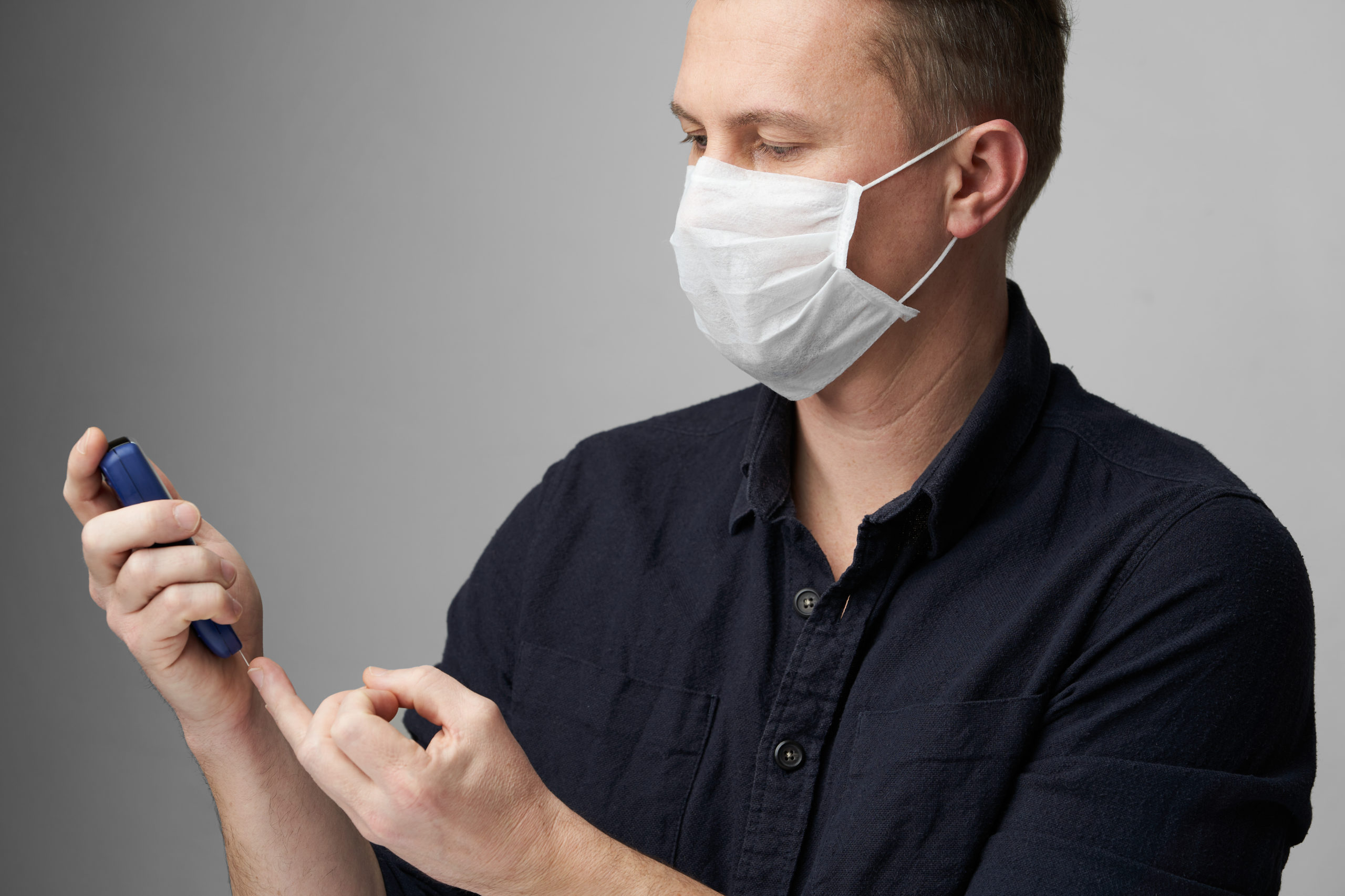One thing we have learned about the coronavirus is that it is far more serious for those with an underlying health condition. One of those conditions is diabetes, which makes the virus especially dangerous for the Middle East.
Diabetics are not necessarily more likely to catch Covid-19. But if they do catch it, they are more likely to face serious complications and require intensive care. And since Type 2 diabetes (T2D) is related to obesity and poor lifestyle, it has never been more important for diabetics to keep fit by managing their diet and exercising regularly.
That is the unanimous advice given by medical experts from the region who joined a webinar organized by the global pharmaceutical company, Boehringer Ingelheim.
Those with T2D are generally more vulnerable if exposed to Covid-19 because they have lower immunity, said Dr Paola Attalah, specialist in endocrinology at the Saint George Hospital University Medical Center in Beirut, the oldest hospital in Lebanon. Even more seriously, their lower immunity makes diabetics particularly vulnerable to diseases of the lungs — the very organs that the virus attacks most virulently.
High blood sugar levels create “a hosting environment” for the virus, leading to more complications for patients because of weaker immunity, explained Dr Mohammed Hassanein, senior consultant in endocrinology and diabetes at Dubai Hospital. He gave a sobering statistic: in the UAE and Kuwait, 40 percent of those who died from Covid-19 also had diabetes.
“Patients living with uncontrolled T2D face a higher risk of contracting the virus than patients living with controlled T2D,” he said. “It is therefore imperative that we educate patients on diabetes self-management and co-morbidities at this critical time. Follow the advice: avoid overeating, monitor blood glucose levels, drink water or unsweetened drinks. Regular physical activity is important.”
There are 39 million people currently living with diabetes in the Middle East and North Africa. The International Diabetes Federation estimates that by 2045, that number will have risen to 82 million.
Diabetes is a known risk factor for cardiovascular disease, as are high blood pressure and obesity — both conditions which are common in diabetics. Taken collectively, this means that those with T2D are four times more likely to die if they contract Covid-19.
Dr Eman Abdulrahman Shesha , director of the Endocrine and Diabetes Center at King Salman Hospital in Riyadh, revealed that one in 11 adults between the ages of 20 and 79 has T2D in Saudi Arabia. Among Saudis over 65 years of age, the proportion is one in five. All cases are the result of poor lifestyle choices and people making little or no effort to control their condition. Ten percent of Saudi Arabia’s expenditure on health goes toward treating diabetes.
Dr Atallah said outcomes for diabetics had worsened during lockdown periods. People were being less careful about what they ate and restrictions on movement meant they took less exercise than usual or none. But as countries gradually resume normal working patterns and daily lives, those with T2D need to be extra careful. In fact, they should continue to work remotely and minimize contact with anyone outside their own household, she advised.
“Stress levels and disruptions to diet and physical activity throughout Covid-19 could contribute to worsening outcomes for patients with Covid-19,” she said. “We should not forget the importance of sport and exercise. Staying at home doesn’t mean we should be sedentary.
“It is essential that patients regularly follow up with their doctors virtually, maintain a healthy diet and fitness routine, stock up on medical supplies and have an emergency contact on speed dial in case of dire situations.
She recommends keeping two months’ worth of medication in stock at all times.
Sugar levels directly affect immunity, said Dr Yehya Ghanem, Professor of Internal Medicine, Diabetes and Metabolism at the University of Alexandria and a member of Egypt’s national committee on diabetes.
“When there is high sugar, immunity is decreased. Controlling sugar is a good way of improving your immunity,” he said. “Good nutrition and exercise – they are the only way to improve.”






